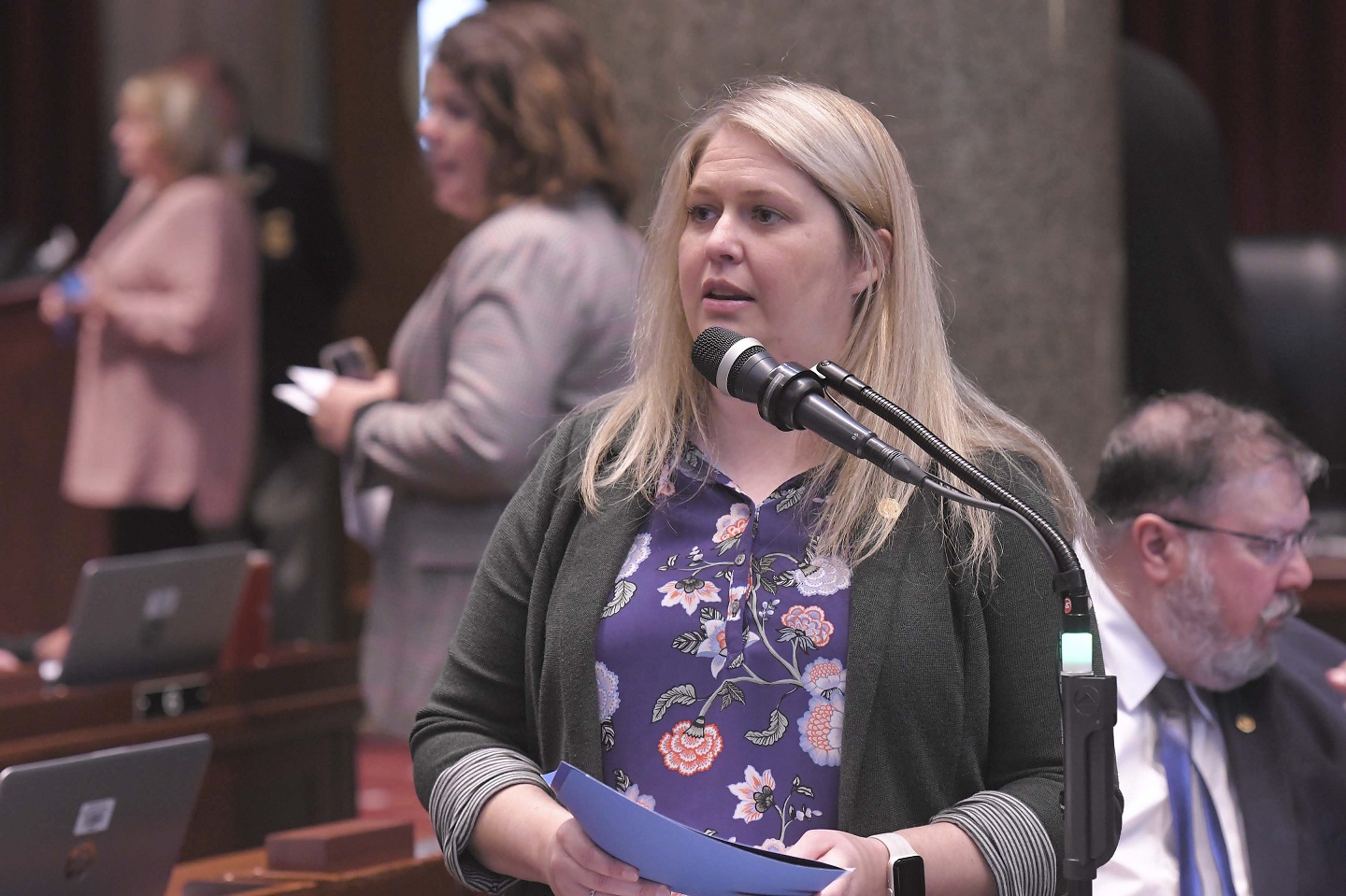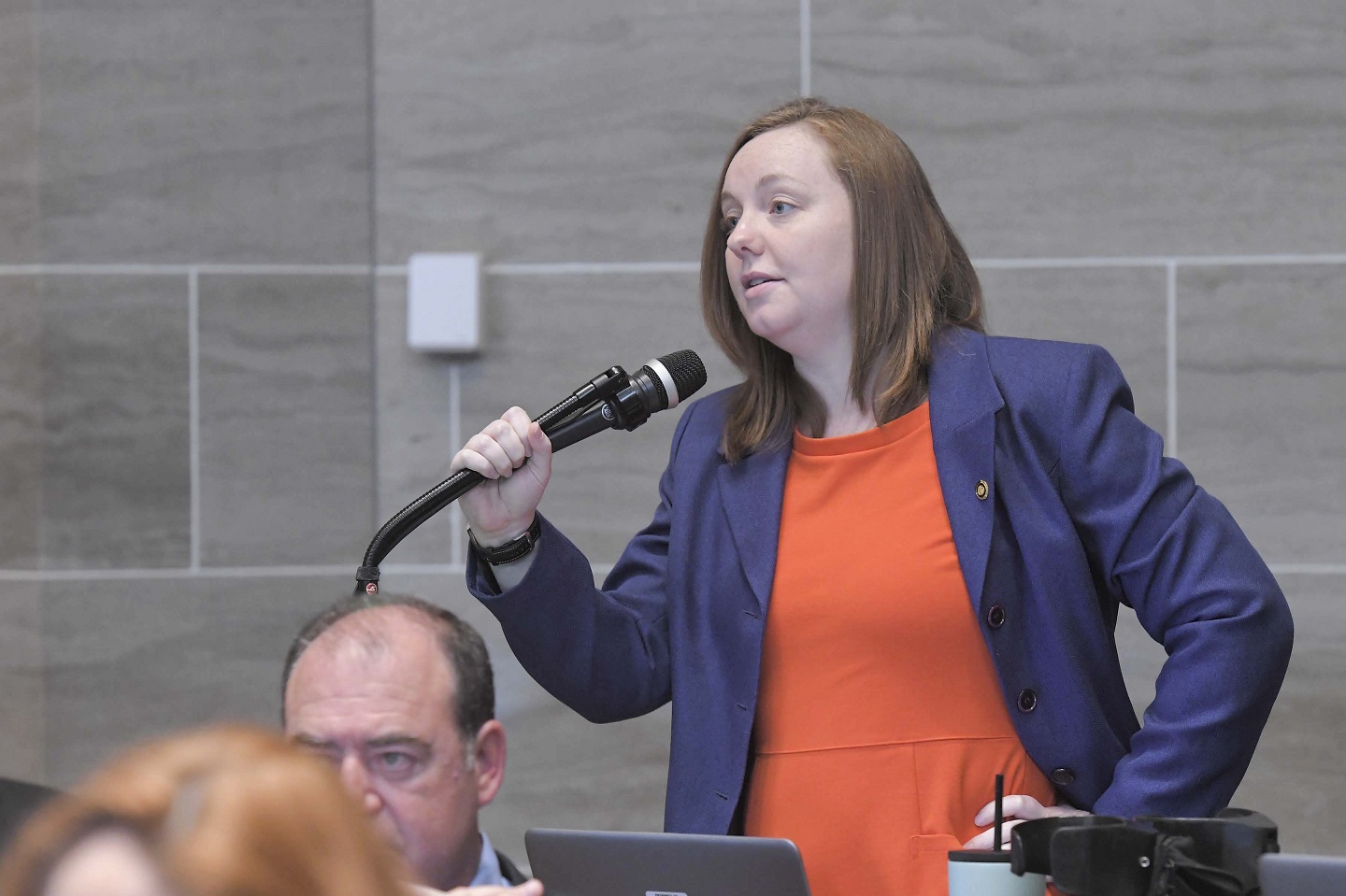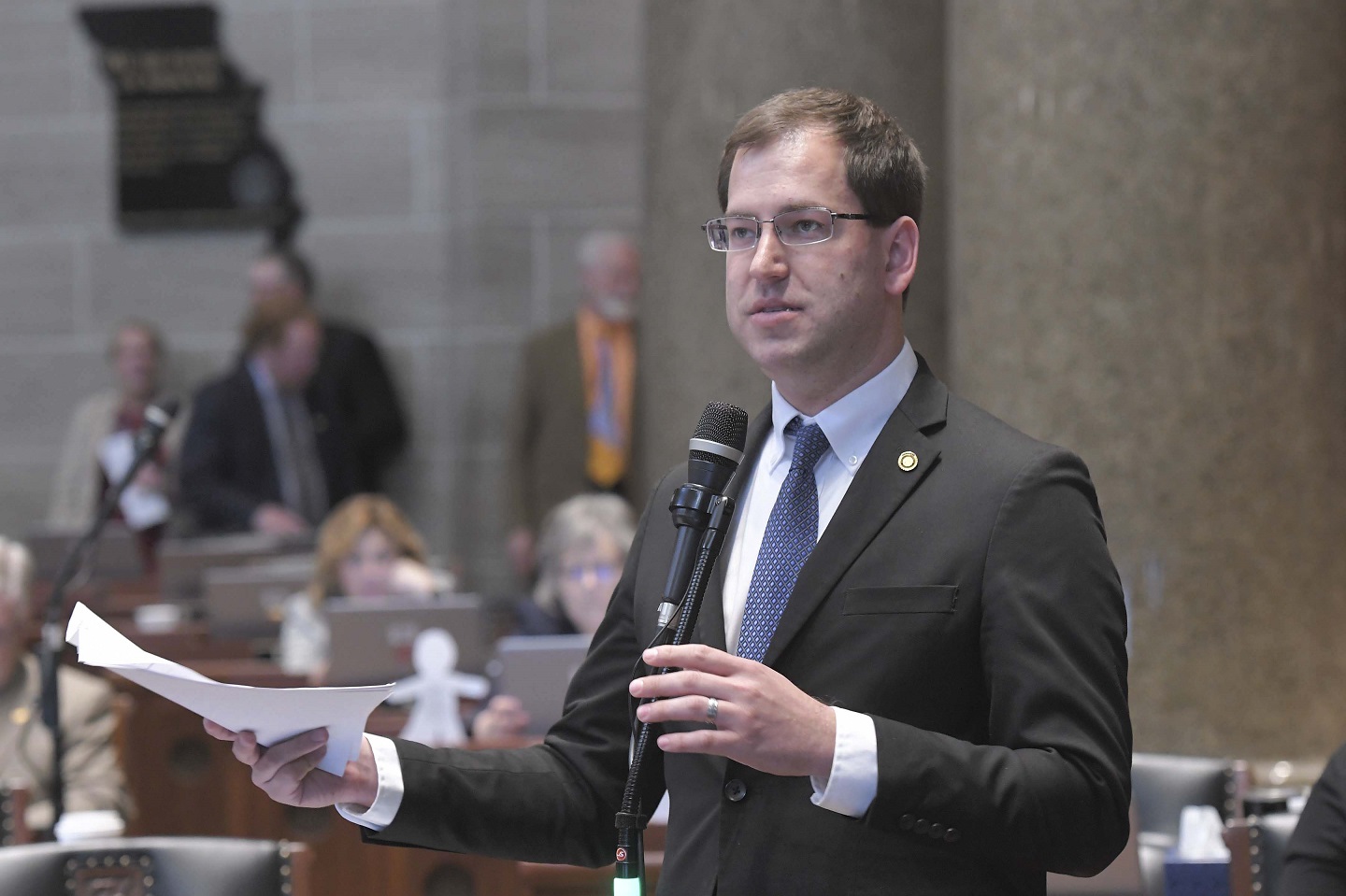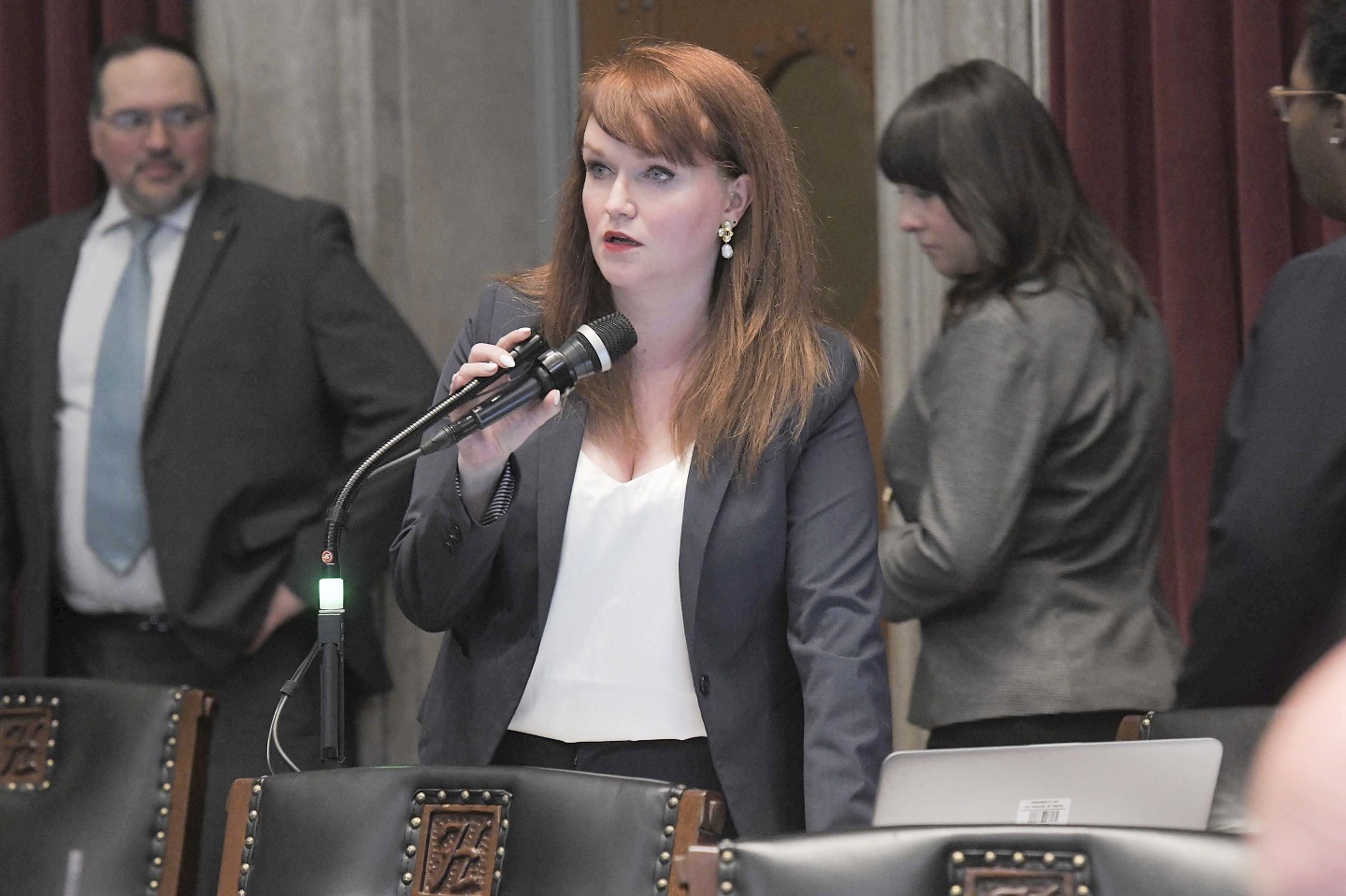A plan that would allow Missourians who are on certain state financial assistance programs to gradually get off of them without falling off a so-called “benefits cliff” is one of the things awaiting action from Governor Mike Parson (R).
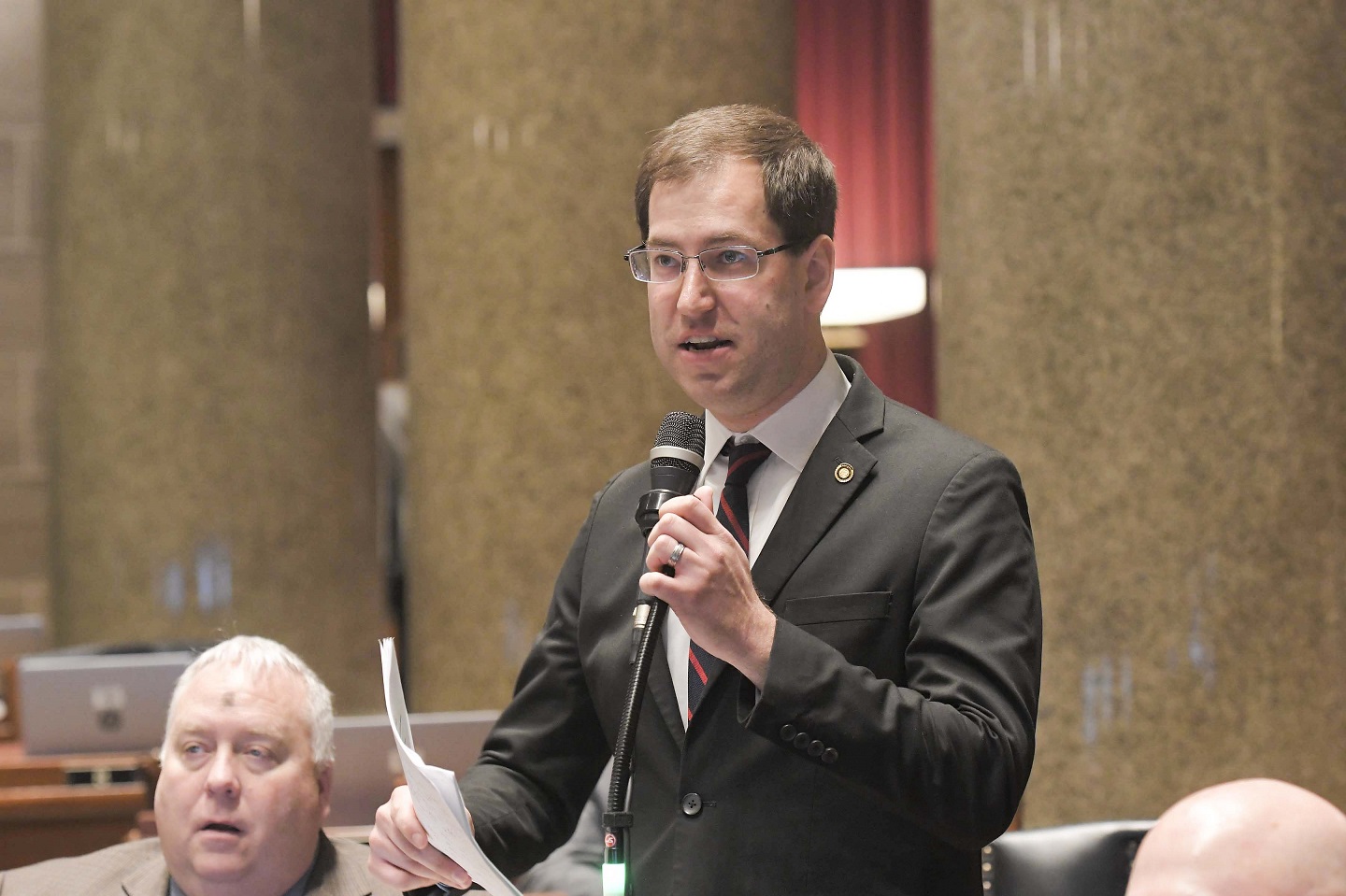
That “cliff” is what policy makers call situations when a person accepts a salary increase that puts them over the income limits for programs like the Supplemental Nutrition Assistance Program (SNAP) or Temporary Assistance for Needy Families (TANF), and what that person then loses in benefits is more than the amount their pay would increase. The result is that often, Missourians on benefits programs are forced to reject promotions and raises, for their own good and that of their families.
The House passed last month a proposed transitional program that would let people get off of state programs incrementally as their income increases.
“Our social safety net system, our welfare system in the State of Missouri, isn’t working. It’s designed in such a way that it really does trap people in poverty and discourages people from trying to get out,” said Springfield Republican Alex Riley, the House sponsor of that legislation. “My goal with the benefits cliff bill was to create a pathway where our welfare system really does what its intended to do, and that’s to serve as a hand up to people to help pull them out of these tough situations that they’re in, and not to serve as an anchor that keeps them in poverty forever and then results in this generational cycle of poverty that unfortunately far too many in our state are in.”
The legislation would apply to SNAP and TANF, and expand and make permanent existing transitional benefits for the child care subsidy program. Benefits to a participant would be reduced relative to their increases in pay until they are making twice the federal poverty rate.
Representative Keri Ingle (D-Lee’s Summit), whose background is in social work, said most Missourians, even if they haven’t been on these programs, could understand having to make the decisions some have had to make, to turn down pay increases.
“I don’t think it’s hard for most people to imagine, in this economy, but, you absolutely wouldn’t want to be in a situation where you had to cut your income,” said Ingle. “One of the great things about this bill is that it allows people to slowly ween off the system. It allows them to be in situations where it doesn’t adversely affect their income to accept a higher paying job, or to have a higher income, to accept a raise, and still have some of those benefits until they can kind of slowly ween off of them and be self-sufficient. We’re really empowering working folks within our state with families to come off the system but to do it in a way that they’re still having all their needs met.”
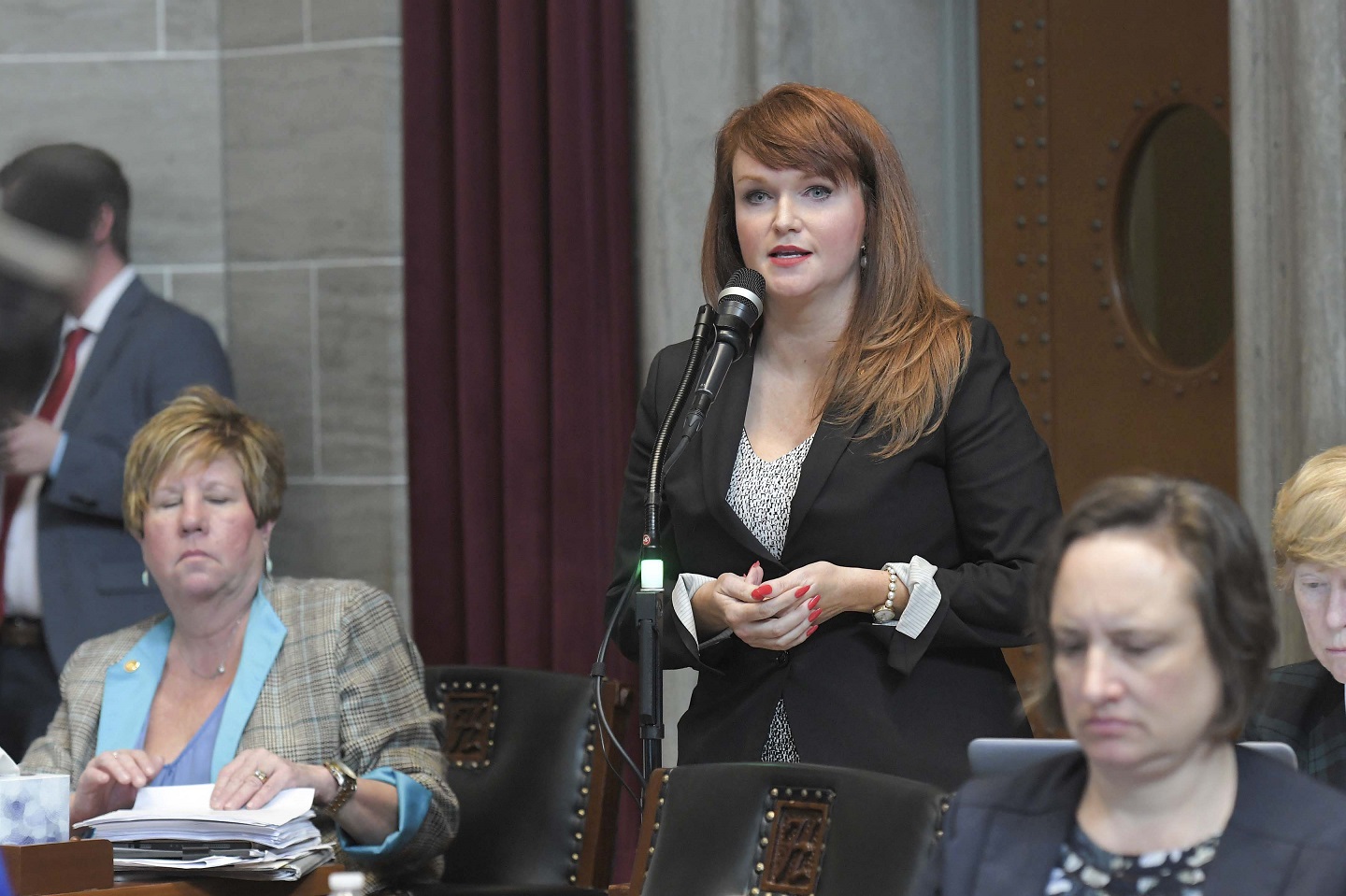
Riley said there’s nothing in Missouri’s various policies and statutes that does what this would do.
“There are some minor benefits cliffs provisions in place for, I think, food stamps, but it hasn’t really worked, so this is a bigger bite at the apple that will, hopefully, do a better job of actually resolving that issue,” said Riley. “Once this has been implemented and is in effect for a few years I expect we’re going to start to see large numbers of people coming off the rolls over time and then once we get a really good opportunity to see how this has played out over time, we’ll have an opportunity to make adjustments if we need to, but hopefully we won’t have to.”
He said the legislation might have to be revisited over time for factors like inflation.
In the end, the legislation received broad bipartisan support. It is a proposal that had been around for several years, sponsored by members of both parties. Even so, Riley said such issues can present a narrow path to success.
He said giving people a way to get off of state benefits is good for them, good for state agencies, and good for the state’s budget.
Ingle said most people who are getting state help don’t want to do so for any longer than is necessary, and they will appreciate this program.
The language passed as part of Senate Bill 106 and Senate Bills 45 & 90, broad bills dealing with various public health issues. Governor Parson could sign either or both of those bills into law, veto them, or allow them to become law without his action. If this proposal becomes law it would become effective on August 28.
